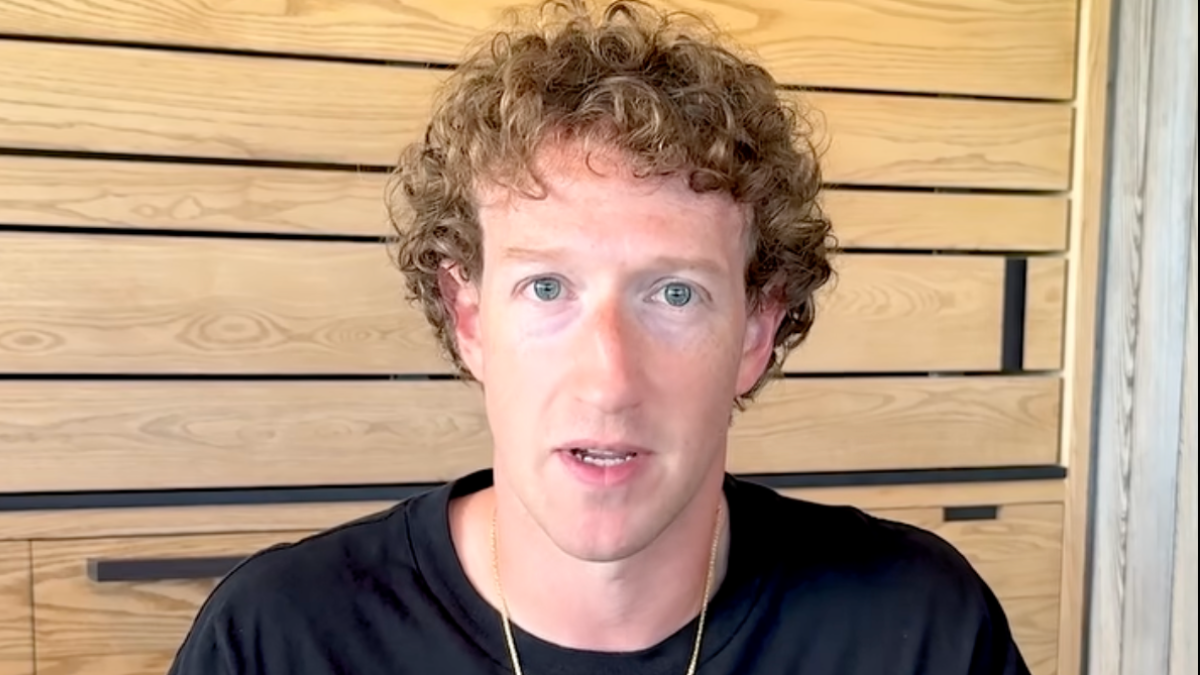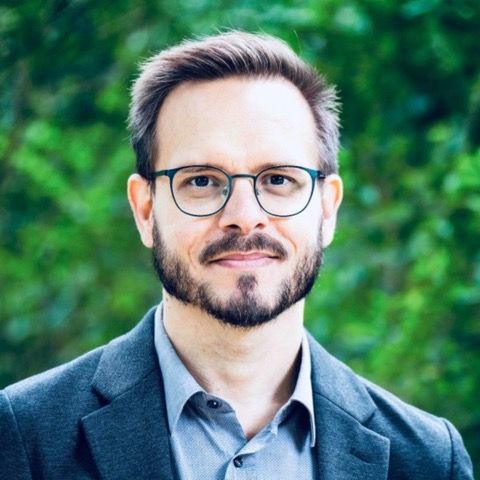Meta is Not Returning to its Free Speech Origins – It’s Preparing for an Autocratic Future
João C. Magalhães / Jan 8, 2025
January 7, 2025: Mark Zuckerberg delivers an announcement about Meta's content moderation practices in a video posted to Facebook.
Mark Zuckerberg’s remarkable announcement on Tuesday that Meta will effectively undo its platforms’ content moderation regime to curb its own “censorship” is bound to become a pivotal moment in the short but convoluted history of online speech governance.
That is not because it will mark a return of spaces like Facebook and Instagram to some idyllic past when speech was free and everyone had a voice, as Zuckerberg wants us to believe. Rather, the importance of his statement lies in how, under the pretense of correcting his alleged mistakes, Zuckerberg is admitting that one of the world’s most politically consequential corporations is ready and indeed eager to serve the interests of the world’s most powerful aspiring autocrat – President-elect Donald Trump.
At first glance, Zuckerberg’s short remarks appear to be a looser, less contrite version of a longer list of apologies. He starts by suggesting that, not long ago, he believed content moderation could protect freedom of speech but that “a lot has happened over the last several years.” The result of using “complex systems” to govern users’ speech, he claims, is that “too many mistakes” were made and “too much censorship” occurred. Therefore, Meta is getting back to its “roots” and “restoring free expression on our platforms.” The words “sorry” and “apologies” are nowhere to be found – but are implied everywhere.
There is much to unpack: how automated moderation, which Zuckerberg once hailed as the solution for speech governance at scale, now appears as a scapegoat; the naked and repeated assertion that Meta “censors” its users, amplifying some of his previous statements; the misleading indication that his platforms originally acted only on illegal content.
The most important aspect, however, is also the most conspicuous one: to whom he is indirectly apologizing. The “millions” of ordinary people unfairly victimized by Meta’s content moderation mistakes might feel vindicated by his words – but they are hardly at the center of what “has happened over the last several years” and certainly not the main actors of our “new era.”
What actually has happened is well-known. First, Zuckerberg’s attempt to deploy stronger speech governance systems to placate policymakers in the so-called “post-truth” era after the first election of Donald Trump in 2016 failed – Republicans’ cries of censorship helped mobilize the American public against Meta and other Big Tech companies, and dozens of countries followed Europe’s lead in dramatically boosting state regulation of platforms. Then, Donald Trump won, again.
It is to President-elect Trump, his acolytes, followers, and allies that Zuckerberg is saying sorry – and pledging allegiance.
It is striking that all the measures his announcement discusses are attempts to appease these actors. By getting rid of fact-checkers and enacting a system explicitly inspired by X's purportedly bottom-up “Community Notes,” Zuckerberg distances Meta from one of the hard-right’s favorite targets (who, in his crude, Trumpian terms, “have just been too politically biased and have destroyed more trust than they've created”) and allows organized masses of illiberal users to shape how problematic content is perceived on his platforms. The idea of removing “restrictions on topics like immigration and gender” is obviously tailored to reactionary sensibilities. The fine-tuning of moderation systems “to focus...on tackling illegal and high-severity violations” will disable systems designed to combat hate speech. (Indeed, the change log on Meta’s hateful speech policy, now called “hateful conduct,” suggests various changes to that effect.) Moving Meta’s moderation team out of California is an overt attempt to build trust with conservatives – Zuckerberg says it will “help remove the concern that biased employees are overly censoring content.” And by allowing the recommendation of political content again, Meta will also ensure that all these changes can, in fact, benefit the political actors they are designed to help.
The final change leaves zero doubt about Zuckerberg’s political intent: Meta will “work with President Trump to push back on governments around the world,” particularly European, Latin American, and Chinese authorities who, as per Zuckerberg’s account, are “going after American companies and pushing to censor more.” An America First version of platform power, perhaps?
It is true that, in the world before Trump, social media companies operated a lighter form of content moderation, where fact-checkers and algorithms played a much smaller role, and corporate policies were less restrictive. Yet there is no going back to that naïve laissez-faire regime when platform power appeared legitimate because it was perceived as apolitical while moderation was seen as economically costly and reputationally risky. With Zuckerberg’s announcement, “free speech” returns, but only as a farce, an ideological decoy based not on expectations of neutrality but on its exact opposite – the near certainty of partisanship.
It is too soon to know if Meta will fully follow the trail blazed by Elon Musk’s X and submit its billions of users to what I have elsewhere termed illiberal content moderation – that is, the use of digital speech governance structures to actively enforce authoritarian views and norms. But the aggressive tone of his announcement suddenly made that possibility – once absurd – appear much more likely.
Attempts to downplay the meaning and significance of his announcement are already underway. Haven’t platforms always tried to appease powerful politicians? Wasn’t Zuckerberg’s rightward shift obvious for months? Maybe this is just an inconsequential promise to mollify Republicans? Yet there is nothing normal about a company that helps define what almost half of humanity sees on their screens explicitly promising to support a far-right leader. And it’s not only Trump. Authoritarians across the world are certainly salivating at the prospect of having an unprecedentedly sophisticated global communication system at their disposal.
Let’s take what Zuckerberg is saying seriously and admit that we are entering – once again – uncharted waters.
Authors
